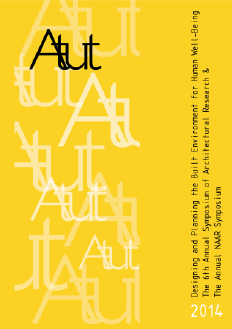A Mobile School in the Digital Era: Learning Environment Ecosystem Strategies for Challenging Locations and Extreme Poverty Contexts
Keywords:
Keywords, Education for All, education and poverty, poverty and brain development, early childhood development, educational technology, educational facilities, pre-primary and primary education, Millennium Development Goals.Abstract
This paper reflects on a major contemporary challenge concerning the delivery of educational services and school facilities in complex non-traditional contexts largely afflicted by poverty, like remote rural and troubled city areas, disaster areas, nomad cultures, or crisis contexts and refugee camps. Extreme poverty is to be found in many developing regions of the world but also in some developed countries. Education empowers individuals, families and communities, addresses the intergenerational transmission of poverty, creates access to economic opportunities and promotes the achieving of a range of sustainable development priorities. In 2000, as part of the Millennium Development Goals, UN and UNESCO set itself the target of ensuring that every primary-age child in the world would be in school by 2015.
However, alarming statistics today illustrate a persistent worldwide lack of opportunities to quality primary education, a huge wasted potential of human capital. In 2014, 57 million primary-age children are reported to be still out of school, another 250 million children are not learning the basics by fourth grade due to poor quality of schools, and 175 million youth are unable to read a single sentence. 200 million young children lack early learning opportunities, at the age most critical to brain development. 28.5 million out-of-school children are marginalized in complex, conflict-afflicted parts of the world, in crisis contexts, war zones, refugee camps, predominantly in the poorest countries and regions. Furthermore, research finds that stressful events and poverty in early childhood affect and alter the development of the brain. However, interventions and strong early childhood programs from the first 1000 days can help disadvantaged children to overcome effects of adversities and poverty on brain development.
While investing in human capital through education is a powerful instrument in addressing the intergenerational transmission of poverty, conventional models of schooling have not proved to be able to scale up rapidly enough to serve unprivileged children in a reasonable timeframe. However, digital technologies open up new perspectives to improving educational access, equity and quality. Mobile technology promotes learning independent of time, place and distance -even independent of teachers. This calls for new strategies and school formats, and challenges aid providers, governments, schooling designers and architects to create more relevant educational ecosystems in challenging and poverty afflicted contexts. As an illustrative case, this paper refers to a disruptive re-locatable ‘mobile’ school format, my project InnoSchool Learning Lab, presented at Venice Biennale 2014 ‘Time Space Existence’ exhibition.
Downloads
Published
How to Cite
Issue
Section
License
Authors retain copyright and grant the journal right of first publication with the work simultaneously licensed under a Creative Commons Attribution License that allows others to share the work with an acknowledgement of the work's authorship and initial publication in this journal.





